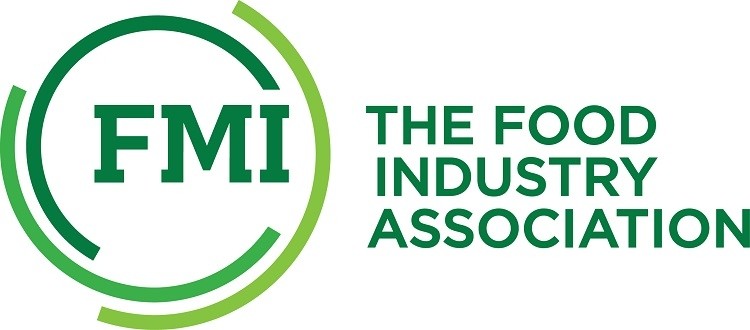FMI rebrands as 'The Food Industry Association’ to reflect rapid industry changes, expanded membership

Formerly the Food Marketing Institute, the trade group announced Jan. 21 that it is simplifying its name to just FMI with the more descriptive tagline, “The Food Industry Association,” which the association’s President and CEO Leslie Sarasin explained, “sets a clearer, easier to tell and more powerful message about who we are as an organization.”
She explained to FoodNavigator-USA that every aspect of the food industry is changing – from the way products are made, moved, packaged, sold and consumed – and FMI intends to support every link in the supply chain from the grower, manufacturer, supplier, retailer and consumer. And, she added, the new branding allows it to better do that.
“Several wise industry executives have reflected that more has changed in our industry in the last five years than in the last 50,” with new pressures and a disruptive business environment that affect all of FMI’s members, she said. “As the industry evolves, FMI is changing, too. We’re committed to helping every company in the marketplace build on its dynamic past, and focus – together – on a brave new future.”
Three pillars of focus
In particular, Sarasin said, FMI will help its members by focusing on three primary areas: effectiveness on public policy, commitment to the issues that matter, and being a forum for “high-impact industry dialogue.”
With regards to public policy, Sarasin said, FMI will “play a pivotal role in serving as the central voice of the food industry, leading the charge with legislative and regulatory bodies to bring attention and make progress on the issues that affect our members.”
This includes pushing for increased transparency with the consumer at a time when the line is blurring between what could be considered a traditional grocery retailer, she said.
“I always challenge people I encounter who may not be familiar with our work to reflect on their experiences shopping for food in store, or online,” she explained. “Observe the types of services, products, processes, people and even technologies they encounter when they shop. We are constantly tackling new issues as they emerge that have ramifications for both our businesses and the consumer.”
For example, she noted, “we are embracing new opportunities that weren’t even issues for the industry a year ago, such as the topic of CBD, challenging us to develop best practices and press lawmakers for clarity.”
Other emerging focus public policy focus areas likely will include the concept of food as medicine and the continuing convergence of food and technology, Sarasin said.
Even as the trade group takes on new issues, Sarasin said it remains committed to issues that have always mattered, including “advocating for and supporting a safe, healthier and more efficient consumer food supply.”
She also pointed to the trade group’s recent Supreme Court victory against Argus Leader Media as an example of how FMI advocates for industry “on tough business issues, no matter the stakes.” In the case, the court ruled that retail stores are not required to release redemption data for Supplemental Nutrition Assistance Program benefits, previously known as food stamps, for fear that releasing the information would cause retailers competitive harm.
As for establishing “a forum for high-impact industry dialogue,” Sarasin said FMI excels at “translating between business and regulatory-speak” to promote “understanding and engagement across the industry.”
FMI does this by offering “more nimble … programming and hosting more intimate events,” rather than concentrating on one trade show, as previously did but discontinued a few years ago, Sarasin said.
Expanded membership
FMI’s rebrand also reflects its expanded membership, according to the trade group.
“Back in the early 2000s, we first invited the fast-moving consumer good sector to join our organization at an associate member level. Now, these same companies are eligible for representation at the board level, giving this diverse set of food manufacturers equal resources and access as our food retail and wholesale members,” Sarasin said.
As such, she noted, “FMI now brings together a wide range of members across the value chain – from retailers who sell to consumers, to producers who supply the food, as well as the wide-variety of companies providing critical services.”
Reflecting on the changes in the marketplace, FMI’s membership and now the association’s branding, Sarasin concluded, “I believe it’s in our collective best interest to embrace this greater food marketplace.”











